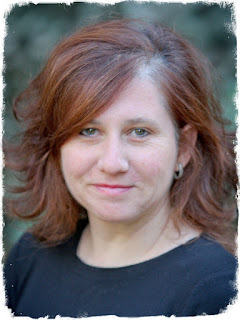Tips from the Talmud: What is the one thing everybody needs?
“Not good” – an expression that will always haunt me. In school, we were “forced” to compose poetry. In short, let’s just say I wasn’t very good at it. One of my more exquisite pieces ended with the phrase “and that was not good” describing some desperate and irretrievable situation. My more creative and imaginative friend, Marshall, thought this phrase very funny. After all, we were supposed to use words that were descriptive and powerful, conjuring up the picture in the mind of the reader. I didn’t show him my work too much after that.
Then comes
along the parsha we just read today, in which Yitro says to Moshe “the thing
you are doing is not good” (shemot 18,17). What is not good? The next pasuk
answers “the task (of judging the people all day) is too heavy for
you; you cannot do it alone”. The only other
place in the Torah where the phrase “not good” is mentioned is describing Adam’s
situation before Eve came along – “it is not good for man to be alone”
(Bereishit 2,18). So we could categorize the “not good” descriptions in
the Torah as situations where a single person cannot possibly come to any good.
To me it seems that the expression used - לא טוב (not good) is telling us not just that it is bad but that no
good can possibly come out if it unless the situation is changed.
We see that
both the sources mentioned are areas where the Torah is describing how to build
a society whether in terms of the family unit or in terms of bringing order and
structure between members of the society. In other words, we cannot create a good
society alone. We need others.
And now we come
to the next gemara for analysis:
“There cannot be a world without perfumers and tanners
- fortunate is a person
whose trade is perfumery, but woe (אוי)
to the person whose trade
is tanning”.
(the materials
used in tanning have a bad smell). (Pesachim 65a)
In an
earlier post, we saw several trades the gemara warned would receive no
blessing. This time the gemara describes a trade in terms of: woe (אוי) to the person who deals in
it. This is an interesting description that conjures up Rashi’s description of
Korach’s rebels as “woe to the wicked and woe to his neighbour”.
This
“Korach” usage of woe leads us to believe that it refers to an extremely
negative opinion of a person. But in our gemara, the person just smells bad. As
long as he and his wife and children had no sense of smell, all would be well,
wouldn’t it? He is not a bad person.
Perhaps
this gemara is referring to something more. Something which is particularly
relevant at the moment. The gemara in masechet chagigah 4a also discusses a
tanner. It quotes an opinion that says that a tanner is exempt from the mitzvah
of Aliyah leRegel (appearing in the Bet Mikdash 3 times a year). And why is
this? Because this person is not included in the description of “all your
males” as it excludes those who are not suitable to be with “all your
males” as nobody wants to be near them. In other words, this is a person who is
excluded from society.
So what could
it mean when the gemara says “woe” to a tanner. Woe to him because nobody is
willing to share company with him. Social distancing to the extreme?
So what is the worst fate that can befall a person, one that is on the level of
Korach’s rebels in its negativity? As we have seen with our own eyes in the
last year and from the gemara and the two Torah sources above, it is the lack
of a social network that prevents a society from “goodness”. This has been a
major issue for many people who live alone, for our children and for ourselves.
Let us
again raise our sensitivity to this issue. Let’s reach out to those in need of
a call, a kind word or a smile. Bring more good to the world and remove the woe/אוי from
those around us.




Comments
Post a Comment